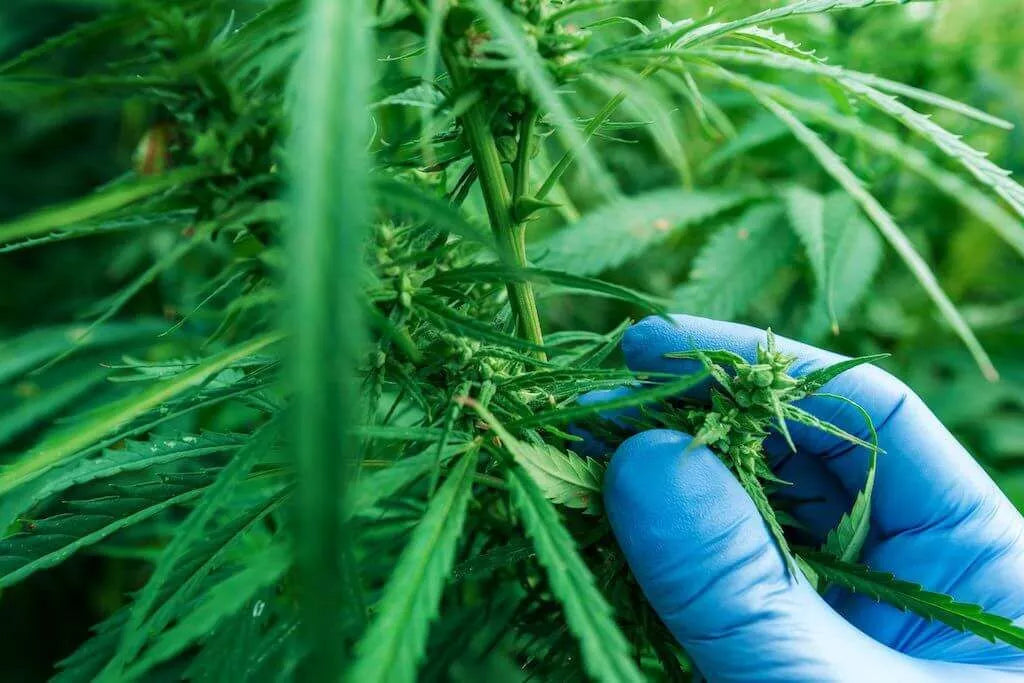THC is the most well-known cannabinoid as it’s responsible for the psychoactive effects of consuming cannabis, but did you know that the cannabis plant doesn’t directly produce THC? It may be surprising for many cannabis consumers to learn that many cannabis plants contain very little THC and a lot more of something called THCa.

Why use THCa?
Research is still preliminary, but studies are already beginning to show that THCa just like other cannabinoids has powerful anti-inflammatory properties, neuroprotective properties, and anti-emetic properties.
What is THCa, and how does it relate to THC?
THCA is tetrahydrocannabinolic acid. It is what comes before THC or tetrahydrocannabinol. In order for THC to become psychoactive, it needs to be heated. When it’s heated, THCa actually changes into THC to give the plant its psychoactive properties. The process can happen slowly as the plant dries or when the heat is introduced. The process when introducing heat is known as decarboxylation.
Alone, THCa can’t get you high.
If you just pick cannabis flowers off of the plant and eat it like that, chances are, you won’t feel any of the psychoactive effects. There’s a reason for this. That’s because when a person smokes cannabis by lighting the plant with a lighter, decarboxylation happens on the spot. This process transforms the inactive THCa into THC. This is also the reason it is recommended to bake cannabis flowers at a low temperature before being made into edibles. This is to ensure that the THC becomes activated and to get the full benefits from your edibles. As cannabis dries, THCa makes a gradual conversion to THC.
Find your Zen, CBD style!
Who needs yoga when you have CBD? Stay calm and collected. Get 12% off your next bottle using code 12NORDIC.

*Can be used on any CBD Oil, apart from 3for2 offers. Use Code 12NORDIC at checkout
Get Your Bottle 😊Heat, Light, And How Exactly THCA Converts to THC.
THCA is considered “thermally unstable.” This means that it will alter when provoked by heat. Because of THCA’s instability, there are a few ways that it can be converted to THC.
- Sunlight: THCa can convert to THC through exposure to light and heat. If a cannabis plant sits in direct sunlight for an extended period of time, its THCa compounds will slowly convert to THC.
- Sit in Room temperature: THCa also converts to THC when stored at room temperature for a long enough time. In an olive oil extract, 22% of THCa will convert to THC over the course of 10 days at 77 degrees. Under the same conditions, 67% of THCa in an ethanol extraction will convert. Over time, cannabis stored at room temperature with very little light exposure will convert 20% of its THCa to THC.
- Smoking: If dried and cured bud is exposed to a high degree of heat for a short time, as a match or lighter would provide during smoking, much of the existing THCa rapidly changes to THC. However, not all THCa converts to THC (smoking isn’t the most efficient method of decarboxylation).
Effects of THCA
There’s still a lot of research that needs to be done about the effects of THCa in the body. While CBD also has anti-inflammatory properties, they work via different biological processes than THCa. This has caused some advocates to claim THCA as the superior anti-inflammatory agent, but until the direct pathways and methods of the action taking place are better understood, it is safe to say they are both very powerful, but work in different ways.

